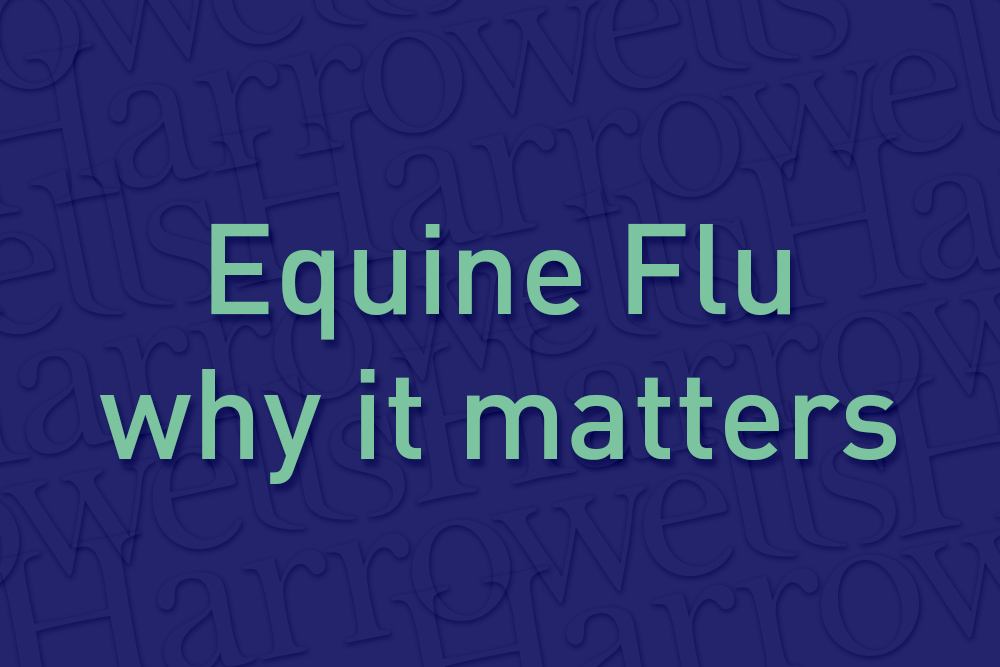So, equine flu has reared its ugly head once more. You may be wondering, however, what it is and why it called a halt to horseracing in the UK for 6 days and why a total of 174 racing stables have been in lockdown.
Equine flu is much like human flu and it is spread in the same way as it is an airborne virus. Whilst it is not possible for humans to contract the virus it can be carried on our clothes, skin and equipment. It is highly contagious with an incubation period of 1 to 5 days, meaning it can and does spread rapidly. The virus causes airways to become inflamed – essentially the horse has a sore throat and a nasty cough. However, this sore throat can lead to infection which can then have a major impact on the overall health of the animal. Elderly and weak horses along with foals can succumb to fatal pneumonia. Sadly, a horse (not a race horse) in Suffolk has already been lost during this outbreak.
The symptoms of equine flu include:
- A very high temperature
- Harsh dry coughing which can last for several weeks
- Nasal discharge
- Enlarged glands under the lower jaw
- Discharge from the eyes and redness around eyes
- Depression and loss of appetite
- Filling of the lower limbs
In addition to this symptomology, it has the overall effect of limiting the competitive capability of racehorses (and other competition horses). In severe cases a horse might be unable to exercise for a number of months.
The recent racing shutdown arises as a result of the difficulty in controlling the disease. Racehorses are regularly transported and mixed with other horses. As such, outbreaks are common when younger, more susceptible horses are brought together at sales, shows or training yards. Quarantine zones or restrictions on movement from a yard can assist to stem the spread. Clearly this was the thinking of the BHA last week.
Many horses are vaccinated against equine flu and receive a booster on a yearly basis as the virus is endemic to Britain. This is one of the most effective ways of combating the virus. In fact, vaccination is compulsory for all horses competing under British Horseracing Authority, FEI and affiliated governing bodies’ rules in the UK. That said, in this instance the concern was of an outbreak of flu in already vaccinated horses.
So where horses have been vaccinated, how could this outbreak happen? The 2019 outbreak has been identified as being caused by the “Florida Clade 1 virus” one of the many different strains of flu. It is particularly virulent. Thankfully, whilst vaccinations can lessen the effects and symptomology it appears clear that the vaccination is not completely effective against this strain. There have been confirmed outbreaks of equine flu across a number of English Counties, although only 2 racing yards have tested positive with 10 racehorses that had been vaccinated.
It should be remembered that not all horses in the UK compete and it is thought that up to 70% of horses in the UK may be unvaccinated. Whilst these horses may not come into contact with horses that do travel widely, it is still possible for the virus to be transmitted.
The Cheltenham Festival is in every ones diary for 12-15 March. This we all know is one of the most important meetings in British racing. The Festival was cancelled in 2001 due to the foot-and-mouth crisis. The estimated cost to the local economy was £30 million and bookmakers were estimated to have lost £100 million. So whilst fears of its postponement this year may be premature the financial cost of such a cancellation is enormous.
Racing has been reinstated under strict biosecurity rules although some have chosen to remain on lockdown for a little while longer. Others have implemented additional measures such as checking passports before unloading the horses or requiring boosters to have been given in the last 6 months.
So, whilst the authorities have been criticised in some circles we believe that the BHA actions were correct as the pause allowed the industry to take stock, check and investigate the position. So whilst the equine vets may have made hay, it is true in this case that prevention is far better than the cure.


